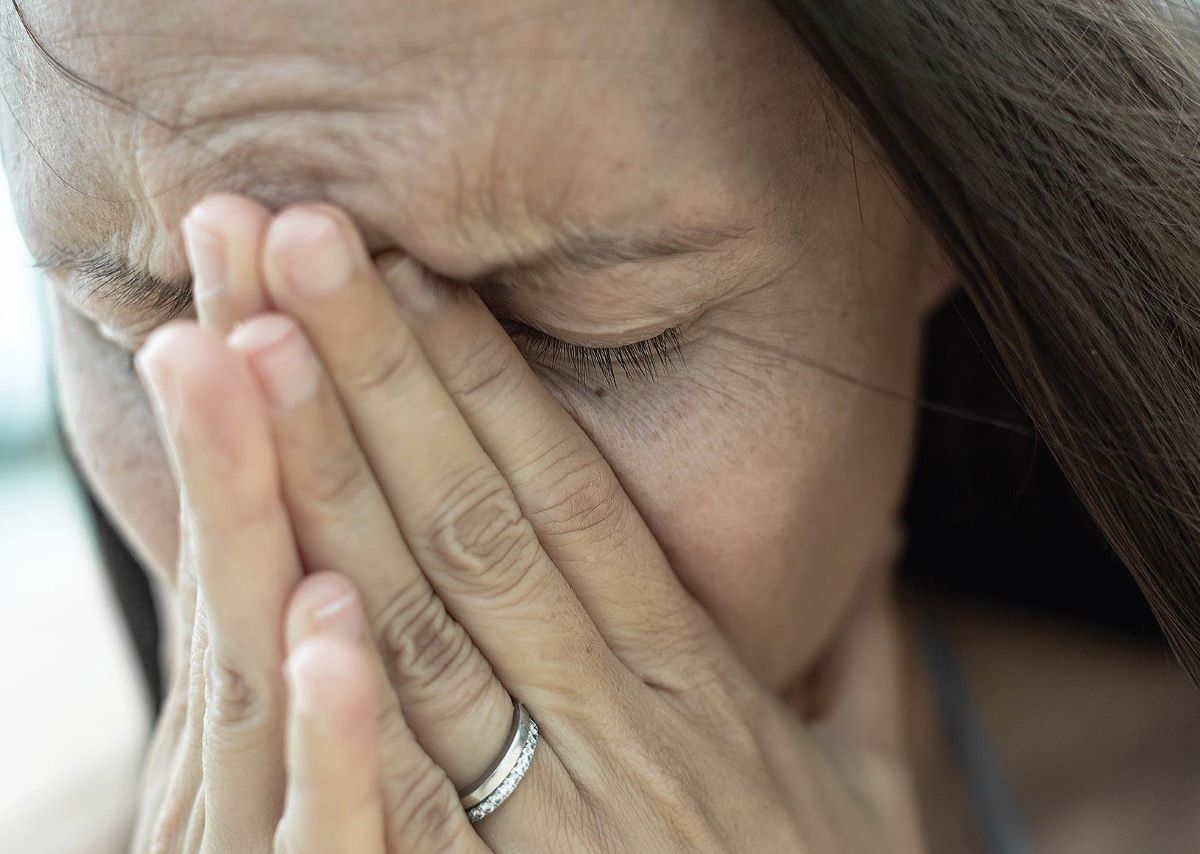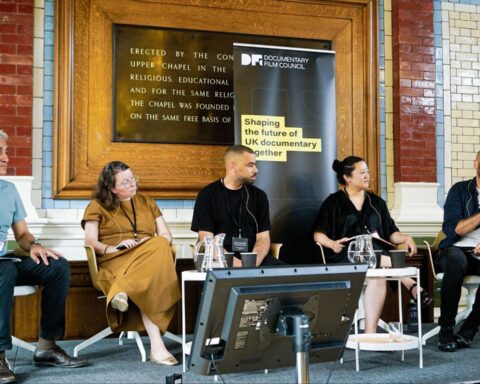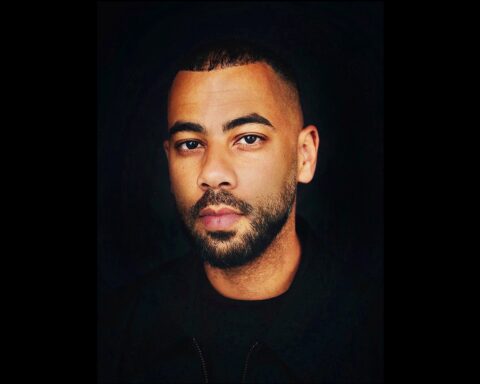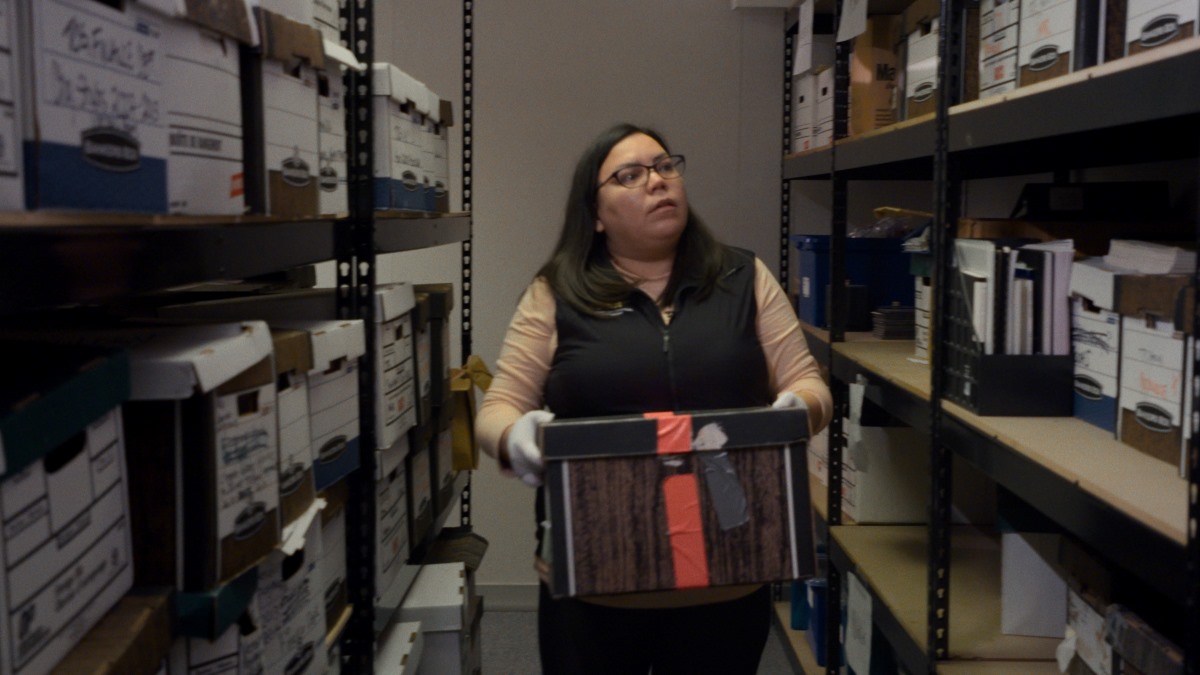“Our only defense is a movie camera, and it can be a very thin shield to hold back the enormity of the world.”
— James Longley (dir. Iraq in Fragments) in Documentary magazine
On the occasion of winning an award for his first documentary, a colleague of mine many years ago told the assembled crowd that the experience of making a documentary was like hauling a big old refrigerator on your back up a mountain without a rope. Everyone laughed. Fitzcarraldo-esque feats such as this have been normalized as part and parcel with independent documentary filmmaking. After all, no one ever said it was a calling filled with milk and cookies.
“That,” says Sarah Spring, executive director of the Documentary Organization of Canada (DOC) and former doc producer, “is just a male-led philosophy. It’s toxic masculinity: Show no weakness; power through. That’s what we’re trying to divorce ourselves from. It’s a failed structure. And as a community, we’re shifting away from this and the focus on mental health is part of that.”
Indeed, thanks in large part to the seismic shifts brought on by the pandemic and the focus it put on mental health challenges and harms across a number of industries and workplaces, the documentary community is starting to recognize that it is high time to address what Spring calls the “Sunday-night shakes.” The phrase, as she explains it, refers to “that feeling of extreme stress that you have before the Monday morning when you go in and you have to deal with all those things that are so do or die.” The funding precarity. The deadlines. The competitiveness. The mania of productivity. The passion and anxiety of pushing projects on your own dime. Editing challenging footage over and over again. These things take a toll on your physical and mental well-being.
For many social justice-driven films, there is pressure on filmmakers from funders to mine their traumas, telling stories that go deep into the hardest parts of one’s life, often without consideration of the psychic cost that may be incurred. Then there are traumas stemming from racism and colonialism, both within the doc world and the larger mainstream world of white supremacy. Then there are the empathic and moral burdens of care for one’s crew and participants, and the need to resist extractive, “get in, get the story, get out” filmmaking. And then, if we have any energy left, we’re on our own to find balance in our lives, all while paying for food, shelter, and childcare.
To do it, stay in it, and survive it requires either a masochistic personality or an addiction to the calling so severe that it boggles the mind. Perhaps both.
Into this zeitgeist has come DocuMentality, a UK–USA-led initiative co-founded by former filmmaker and current Film in Mind UK psychotherapist Rebecca Day and NYC-based social worker and director of industry and education for DOC NYC Malikkah Rollins. Their mission is to raise the alarm about mental health in the world of documentary, and they’ve offered up a path toward action. They’ve amassed qualitative evidence culled from focus-group sessions that included some 150 filmmakers. The Canadian leg of the research has resulted in DOC’s own report, released this past spring at Hot Docs.
DocuMentality organized seven focus groups of filmmakers with shared identities: Black, Muslim, and racialized; Indigenous; 2SLGBTQIA+; people living with disabilities; women and non-binary; and mixed Francophone and Anglophone groups. One could quibble over the methodology. Rather than a random sample from DOC’s 1,300 members, the participants were highly motivated and self-selected. And there are no comparative data given on incidences of mental health challenges in other industries. Nonetheless, the findings cannot be dismissed. Too many people to ignore are struggling with their mental health in ways directly linked to the call of documentary filmmaking. It’s all made that much worse by the fact that funders know that you are as committed to your story as you are to breathing, and you’ll do that “powering through” whether you’re properly supported and funded for it or not. The findings resonate very clearly across all the groups and with data collected on colleagues in the UK and the US. They form the basis for the urgent action items we need to address.
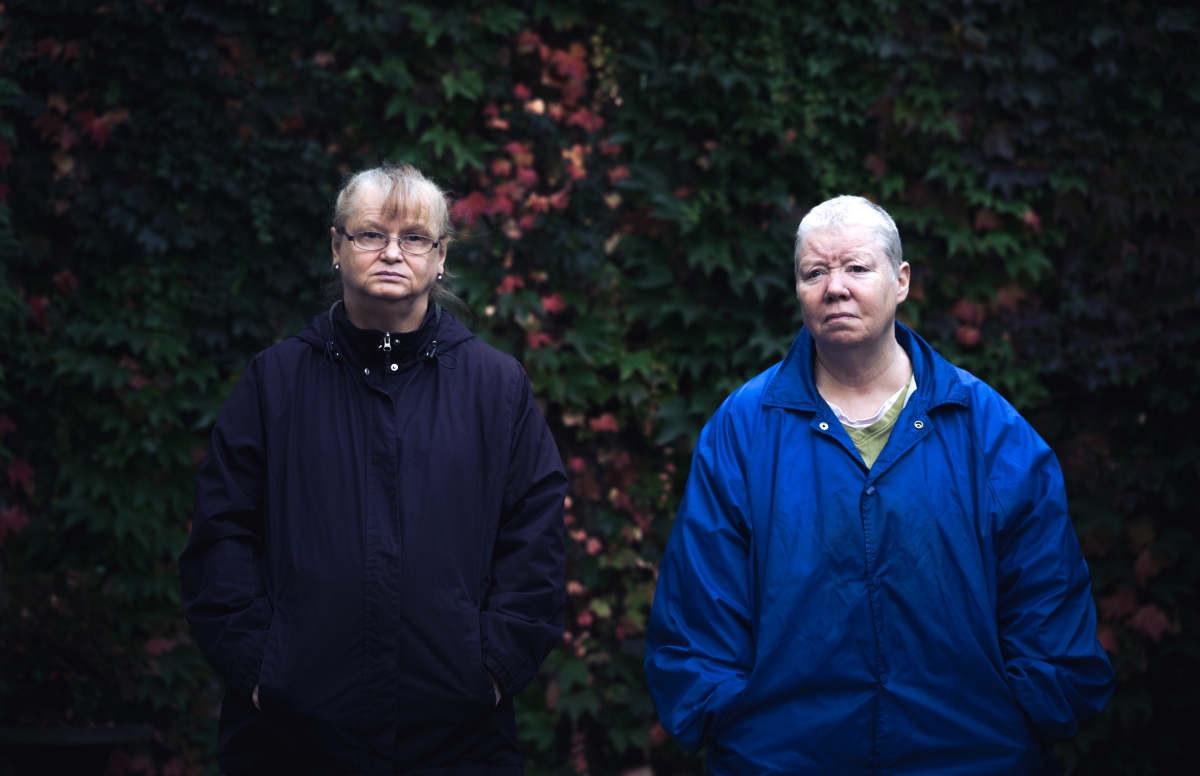
I didn’t participate in any of the focus groups, but I identified with much of what the facilitators heard. Without being aware of it consciously, I found that, after making Unloved: Huronia’s Forgotten Children (2022), which included details from my own family history, narratives of other institutional survivors, and evidence of traumatization and dehumanization of children, unmarked graves, ableism, racism, and colonial harms, I couldn’t sleep or be motivated to do much at all. I was riddled with aches, pains, and auto-immune issues, while ensuring everyone involved was okay with what we collectively put out into the world. Call it unacknowledged vicarious trauma. Until I read this report, I didn’t connect it all up, and I speak as one who undertook to study therapy counselling when the project began in 2014!
So, what are the action items?
First is to create budgets that recognize consultancy, counselling, set care, and child care. Telefilm Canada has allowed for budget lines to cover consultants and counselling. That’s a start. It needs to be standardized. In my view, many types of documentary filmmaking are akin to a therapy process, except that most filmmakers are riding on instinct and intuition to carry them through, without the training actually required of therapists (who often have their own counsellors throughout their training and careers). We need all funding partners to acknowledge that these skills and supports must be baked into the budget.
Second is finding ways to fight the isolation that documentary filmmakers so often suffer from. Indeed, the whole reason for DOC’s founding in 1983 was precisely to create ongoing get-togethers, face-to-face bull sessions every month where folks would share and compare their experiences, from funding and access issues to biases and the toll of isolation. We need to “go back to the future” by having these face-to-face informal engagements again. Leaving it up to training environments or festivals doesn’t work for some of us who can’t stand the hustle and competitive energy of these events.
Third is access to therapy itself. This is a biggie, which butts up against the national failure to provide Canadians with timely mental health care. Waitlists are inhumane, and without a serious diagnosis, the most that is covered by public insurance in Ontario is 12 sessions. The only modality on offer is cognitive behavioural therapy. And that’s absurd. Imagine using only one type of chemo for the whole universe of cancers. We wouldn’t do it. It’s bad medicine. So why are we still beholden to the lie that this is sufficient? We need access to a fund, potentially through the Mental Health and Addictions division of the Ministry of Health and Long-Term Care. This is especially important for those who don’t have private insurance.
Fourth is teaching funders that their own demands and blind spots are harmful. These include ableist and unrealistic requirements that cause pain and point to the flaws in the whole process, from development to delivery and promotion, to lack of training for diverse creators and a tokenized push for identity-linked funding (it reproduces marginalization, something cis women filmmakers have long fought against to no avail).
Finally, we need to collectively draw up legally enforceable new standards—heck, any standards!—for safe working conditions. Hours. Breaks. Self-care. Set support. Crew and participant care. There are many other suggestions (universal basic income anyone?) but at last we’ve begun to name the problem.
Read the report here.




